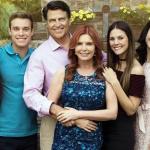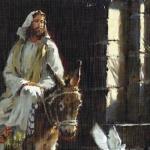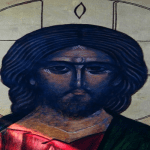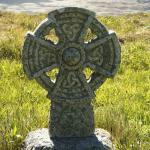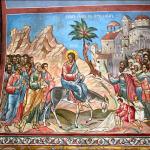This year I’ve begun watching the engaging British period drama Downton Abbey, in which the prevailing attitude toward Catholics, for most of the show’s characters, is predictably English. I personally find a great source of amusement in their occasional offhanded jabs; for example, a few weeks ago I got a good chuckle from the throwaway line, uttered by the aristocrat Lord Grantham to a visiting Anglican bishop, “There always seems to be something of Johnny Foreigner about the Catholics.”
In last week’s episode, a dispute over the national and religious identity of a newborn baby provokes a more extensive and spirited discussion. In one particular scene, a staunchly Anglican priest who is a dinner guest at Downton asks, “But isn’t there something rather un-English about the Roman Church?” The only retort on the part of the baby’s father is that this is not likely to bother him since he is Irish. Meanwhile, a similar conversation is taking place among the servants downstairs, in which Carson, the classically conservative butler, comments that he “find[s] it hard to believe [Catholics] are loyal to the crown.”
As well you should, Mr. Carson. If we truly are what we call ourselves – the One, Holy, Catholic, and Apostolic Church – these ecclesial marks should call national loyalties into question for Catholics everywhere. Our compatriots should at times be given cause to speculate: “There’s something strangely foreign about those Catholics. Their ideas about universal human dignity, community and the common good threaten our hallowed doctrines of exceptionalism and individualism. They are always defending the most inconvenient people – the unborn, the poor, the prisoners, the immigrants, the citizens of enemy nations. Can we really believe that such people, belonging to such a large, old institution beyond our borders, are fully loyal to the flag and the republic for which it stands? Isn’t there something rather … un-American about them?”
Such speculation need not only apply to English or American Catholics. Catholicity means there may well be reason to question the extent to which one can really be both Catholic and Norwegian, or Danish, or Swiss, or Russian, or Chinese – or even Catholic and Irish, or Mexican, or Spanish, or Italian, or French.
Granted, on one level, when it is questioned whether a Catholic identity is compatible with a national one, the answer can in all cases be yes. Being Catholic does not abolish anyone’s nationality. But belonging to the Church universal means there is always another, greater claim on our loyalty. Catholic citizens and residents of countries in which they are a suspect minority – such as England and, through much of our past two centuries of history, the United States of America – have often felt this tension keenly. I am convinced that this minority experience has not been an impediment to the vitality of the Catholic Church but has in fact been essential to it. As Aaron Weldon has argued (here and here), sometimes our Church must lose some measure of social status in order to preserve her life. Knowing what it’s like not to have our faith taken for granted, what it’s like to be suspect in our own homeland, forces us (or should) to let go of our libido dominandi and realize that we are not any sort of religious noblesse obligée entitled to social privilege, but rather resident aliens in whatever part of the world we yet belong to.
The beginning of the scene described above is shown starting at about 1:09 in this clip. The full episode can be seen here (the entire scene in question is from 18:47 to 21:15, but the whole thing is worth watching on its own merits).












